The Real Reason Workers Distrust New Technology

Posted on Feb 29, 2016 in Manufacturing
5 min read time
“These machines have thrown thousands of us out of employment, which has brought us great distress and we are now not are not able to provide for our families. Each machine can do as much work in one day as twenty men. Eight thousand workers are deprived of the opportunity to earn a livelihood. We hope that those who have it in their power to prevent the use of those machines, will discourage their use which prejudices their fellow creatures.”
These are the words of a petition against the use of new technology in manufacturing. The loss of jobs is a worry which causes many people to be wary of robotics. We have discussed before on the Robotiq blog how this fear affects the public (and workforce) perception of robots. But, which worker wrote these words? The quote is taken (and slightly paraphrased) from a petition by textile workers in 1791. They were protesting against the introduction of a new wool-spinning machine into textile mills.
Introducing Technology By Force
The textile industry gave birth to the first factories. It kick-started the industrial revolution, without which the robotics industry would never even have been imagined. However, the workforce in 1791 did not take kindly to the new technology, and with good reason. They were powerless to stop it, or even influence it. Just ten years earlier, one of the first cotton mills had been burned to the ground by workers trying to defend their livelihoods the only way they could see how. Factory bosses defended the introduction of the machines, saying that they improved productivity and “reduced manual labor nearly one third”. They didn’t even seem to care that this was exactly what the workers were worried about. In the 1790s, introducing new technology meant a battle between employer and employee.
Modern Workers Have Autonomy Through Automation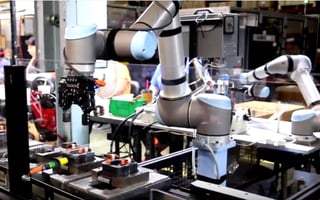
Fast-forward to 2016 and the scene could not be more different. Take this quote from a worker at Scott Fetzer Electrical Group talking about the introduction of two UR robots to their factory:
When the robots first came on the floor, employees were a little nervous about it, but now they act like they can’t live without them. They are constantly asking “Can we put a robot in this position, or that position?” There’re a lot of people who are trying to figure out where we could put our next robot, to help our process.
This quote demonstrates the strong differences in what it meant to be a worker during the industrial revolution and what it means today. Several things are different today for the person to be able to say this:
- The workers were involved with introducing the new technology right from the start.
- Their initial concerns about it were listened to and understood.
- The workers did not feel threatened by the acquisition of the technology.
- Everyone was encouraged to come up with ideas about how to use the technology better.
- Communication about the technology involved everyone.
- The workers were given autonomy and so had a sense of ownership of the technology.
It’s sometimes easy to forget that the culture surrounding modern business has changed dramatically since the industrial revolution. Although there are exceptions, in general, businesses realize that it is important to give employees autonomy in their work. It’s important to involve the team in decision-making when introducing a robot.
In 1791, the approach by factory bosses was “Here is some new technology. You must use it and many of you are going to lose your jobs because of it.” In 2016, the approach has become “Hey guys, here’s some new technology. Do you think we could give it a go and see if it works for us?” Isn’t it nice to see we’ve improved in the last 225 years? However, although the world has changed recently, it’s not so easy to change long-standing cultural fears. The idea that machines take jobs is very deeply rooted in our cultural history, at least in the West. The idea that machines make jobs is much newer. Also, the move to empower workers is only relatively recent. Just-In-Time manufacturing (which integrates employee empowerment at its core) only became popular in the 1980s, for example. Our cultures have a lot more history being distrustful of machines than they have being empowered by them.
Aren’t People Naturally Afraid of New Technology?
You might wonder if fear of new technologies is just a natural resistance to change. It is certainly true that some people deal better with change than others. The terms “technophobe” and “luddite” are often used to describe people who just don’t like new technology. The Luddites, in case you’re interested, were a group of those textile workers who protested against the introduction of machines in the early 1800s. People often accuse the older generations of being technologically averse. This may be simply because, as Douglas Adams said:
“Anything that is in the world when you're born is normal and ordinary and is just a natural part of the way the world works. Anything that's invented between when you're fifteen and thirty-five is new and exciting and revolutionary and you can probably get a career in it. Anything invented after you're thirty-five is against the natural order of things.”
While this is true to an extent (though thirty-five seems a bit young), it is also true that the workforce keeps evolving. Each generation is more technically literate than the previous generation. New technologies become old technologies very quickly. A Puma 500 robot now looks like ancient technology, but some years ago it was viewed with suspicion. Although collaborative robots are still new right now, soon they will be as familiar to the workforce as a CNC lathe or a laser cutter. Employees may be naturally anxious about this new technology. But, as long as people can see the technology’s benefits to their own work, they probably won’t burn down the factory, like the Luddites did.
Do you think people should be anxious about new technology? Have you got any worries yourself about introducing robots? How is worker autonomy promoted in your workplace? Tell us in the comments below or join the discussion on LinkedIn, Twitter or Facebook.
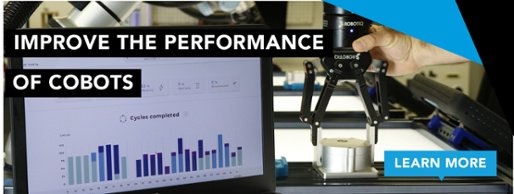
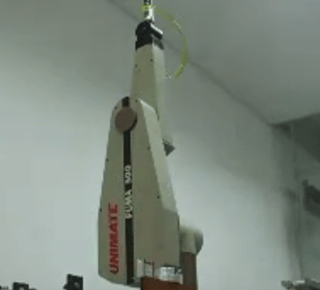
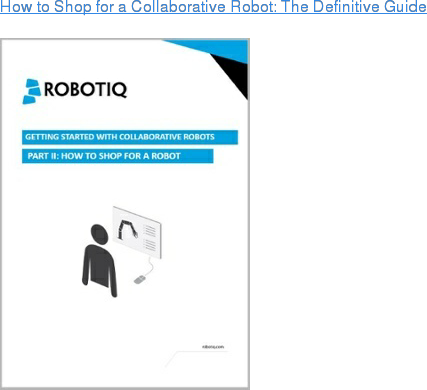
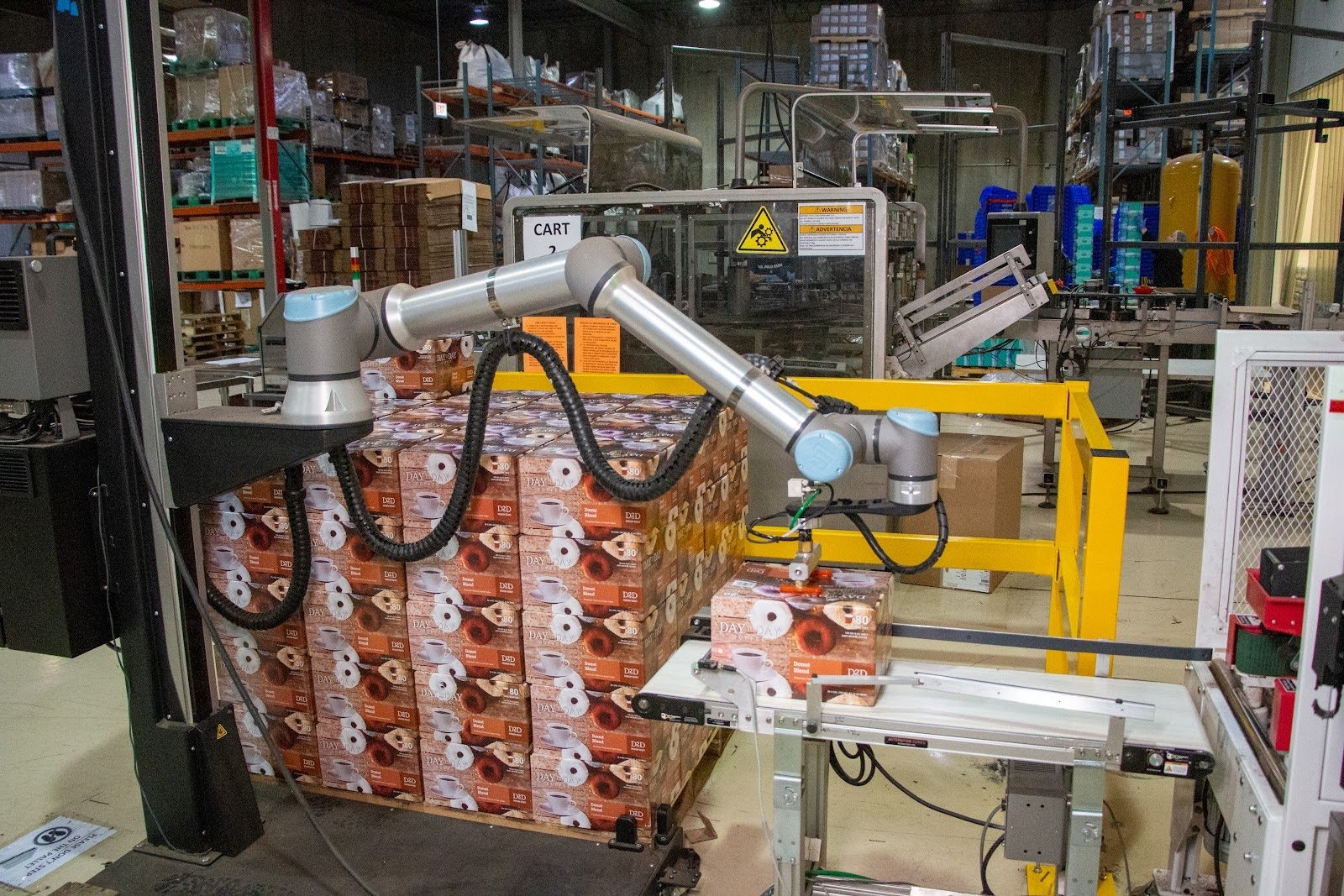

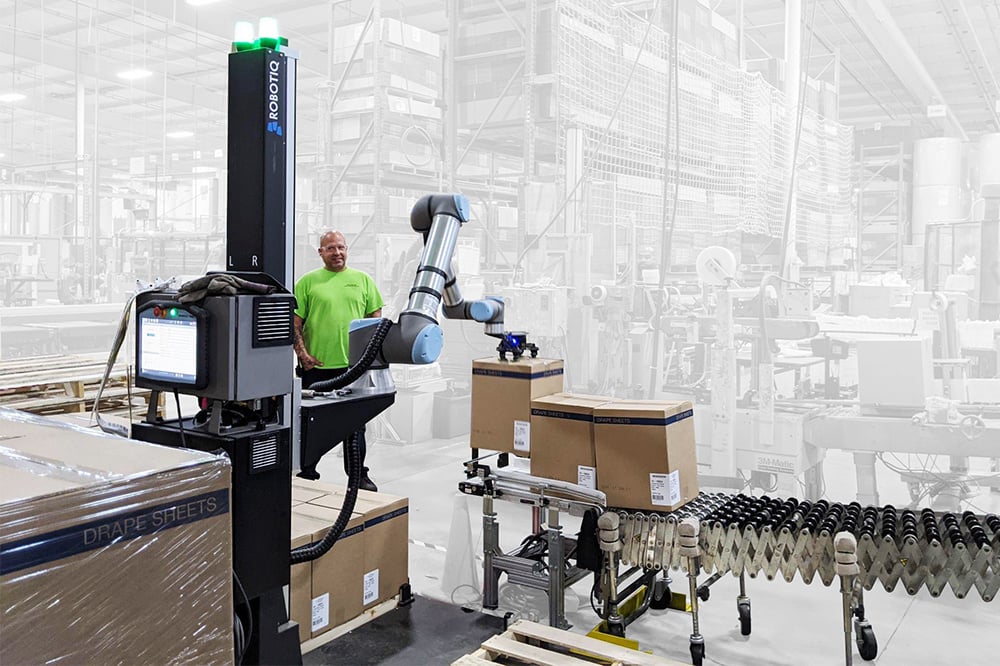
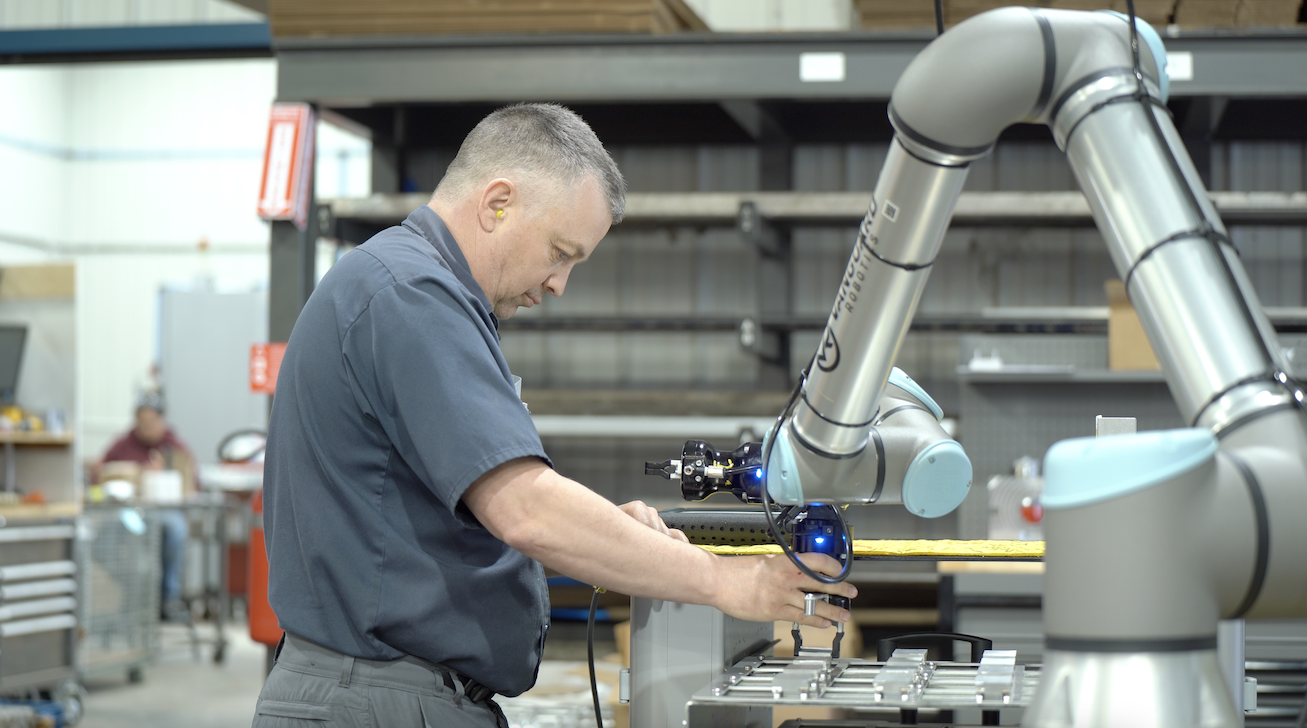
Leave a comment